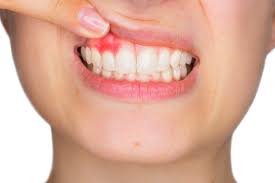Are you seeing some pink in the sink when you brush your teeth? Although it might seem normal to experience a little bit of bleeding while brushing or flossing, it shouldn’t be ignored. Bleeding gums could be a sign of a number of dental problems, but it’s usually a symptom of gum disease. In some cases, the causes of bleeding gums may be the result of injuries or infections of the teeth.
Gum disease usually isn’t painful, so many people don’t know they have it until it advances. Being aware of the symptoms can help you catch gum disease early — and possibly reverse it through gum disease treatment. Bleeding is often one of the first signs there’s a problem with your gums. Bleeding that’s accompanied by red, swollen gums, tenderness, bad breath or tooth sensitivity are symptoms of gingivitis, an early stage of gum disease. Bleeding accompanied by receding gums is also a common symptom of gum disease.
Keep reading for details on the causes of bleeding gums and bleeding gums treatment, as well as tips on how to stop bleeding gums when you’re in between dental visits.
Bleeding Gums Causes
Rarely, bleeding gums may be a symptom of other problems pertaining to your mouth or body. While bleeding gums are usually a good signal that you have gum disease, causes of bleeding gums can also result from:
- Brushing too hard
- A vitamin deficiency
- Taking blood thinners or other medications
- Bleeding or clotting disorders
- Hormonal changes during pregnancy, resulting in pregnancy gingivitis
- Dentures that don’t fit
- Mouth sores
- Other medical problems, including diabetes, heart disease, leukemia or scurvy
Regardless of your situation, it’s important that you don’t self-diagnose. Only a dentist or medical professional can determine the causes of bleeding gums and offer the right treatment.
Bleeding Gums Treatment
The best bleeding gums treatment is to remove from your teeth the plaque bacteria that causes gum disease. When dental plaque builds up, it turns into tartar, a hard, sticky substance that adheres to your teeth. Without regular teeth cleanings, dental tartar can become a breeding ground for even more plaque, which can creep below the gum line and lead to an infection that causes bleeding gums.
So if you notice that you have bleeding gums, see a dentist as soon as you can. Seeking bleeding gums treatment at the first sign of a problem can help reverse gingivitis and help prevent periodontal disease. Other treatment options, such as scaling and root planning procedures, slow down the process of gum disease. If you suffer from an advanced form of periodontal disease, your dentist may recommend ongoing bleeding gums treatment or periodontal therapy. In some cases, dental surgery may be needed to control the bleeding.
How to Stop Bleeding Gums
The best way to stop bleeding gums is to see your dentist. Your dentist can give you tips on how to stop bleeding gums in between dental visits. That advice might include some of the following tips:
- Use a soft toothbrush — and brush properly! Brush your teeth for at least two minutes twice a day and after meals. Hard brushing can further damage the soft tissues of your mouth.
- Floss at least once a day and be sure to floss beyond the gum line to remove more plaque.
- Control bleeding by applying pressure to the area with a cold compress.
- Rinse with salt water or hydrogen peroxide to keep the area clean. Avoid mouthwashes that contain alcohol, which can dry out your mouth.
- Stay away from smoking and other tobacco products, which can aggravate bleeding gums.
- Eat a balanced diet and limit snacking between meals. Carbohydrates and sugars feed dental plaque.
- Try an oral irrigation device, commonly known as a “water pick,” to clear debris from around the gum line.
- Have your dentures aligned as needed.
If you have bleeding gums, visit a dentist. A dentist is the expert you can count on to explain the causes of bleeding gums and to advise a treatment plan.

